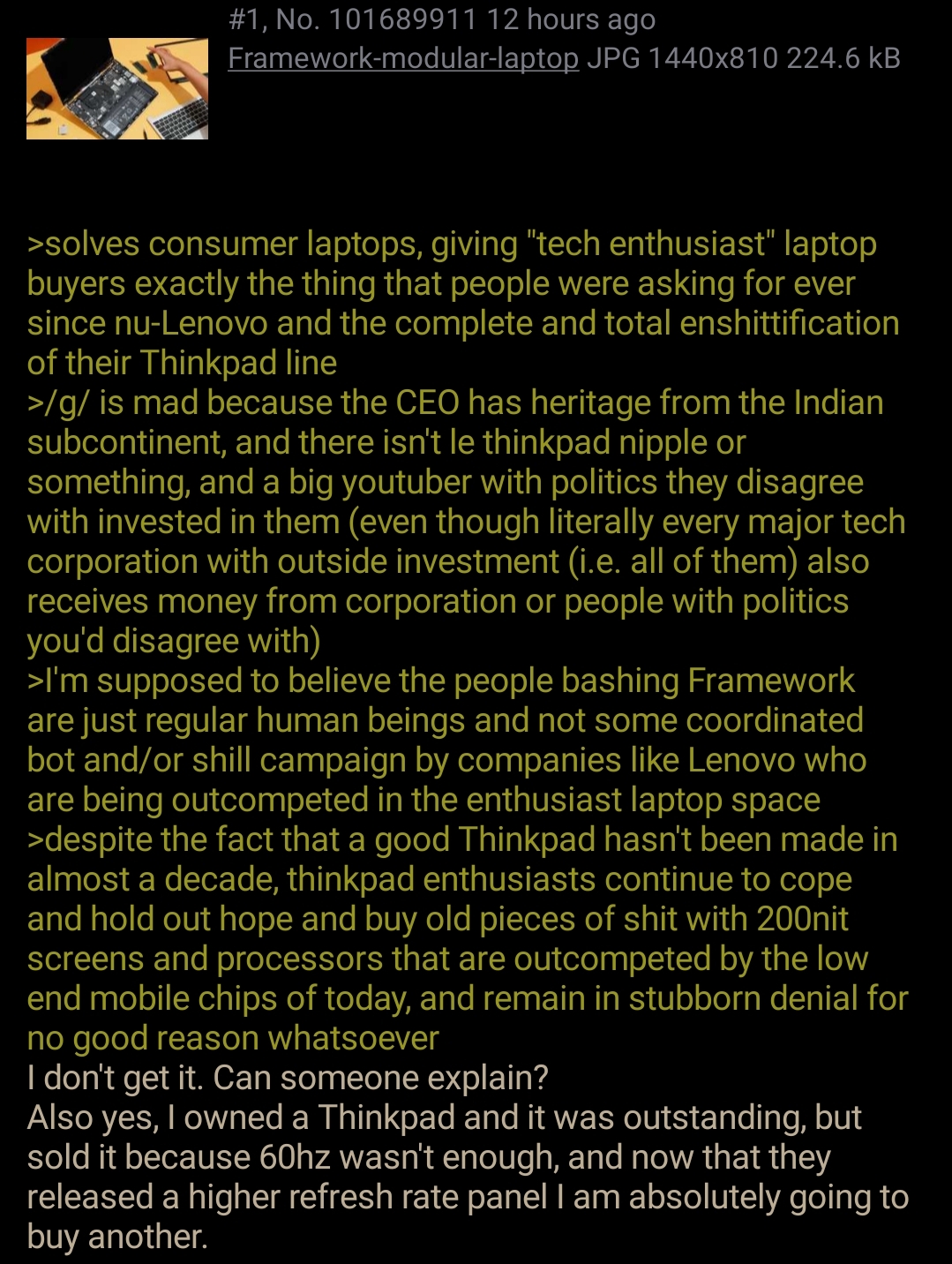this post was submitted on 03 Aug 2024
361 points (97.6% liked)
> Greentext
7905 readers
1 users here now
founded 3 years ago
MODERATORS
you are viewing a single comment's thread
view the rest of the comments
view the rest of the comments

I guess it depends what you value. I have a Framework 13, first generation. I run Linux on it and really enjoyed putting it together myself (I ordered the DIY option).
I absolutely love their ports. You swap in the ports you want. I normally run a USB C on either side (so I can charge from either side) plus a USB A on each side (the Framework 13 has two slots each side, I think the 16 might have 3 each side?). But I also have HDMI, Display Port, and micro SD in case I need them. I can hot swap them in.
Their guides are awesome. I broke a screen and was able to order another and replace it myself following their guide. When the time comes (probably in the next year or so) I'm planning on upgrading. A bit like a desktop, since it's been a few years it means replacing the motherboard (what they call the mainboard) and RAM since technology moves on. I"m pretty sure like all laptops the CPU is fixed to the mainboard, but you can upgrade RAM or storage without replacing the whole guts (assuming same slot type). In fact you can buy without some pieces and reuse stuff you have or buy from elsewhere to save some money.
When I eventually do it I'm planning on strapping the old mainboard to the back of my TV as a HTPC (replacing the old dying laptop currently there).
There are plenty of downsides. No touchscreen. I wish the screen was a little brighter, it's not bad but could be better (might be better with later models?). I replaced the hinges with their more resistant ones but the screen still moves if I carry it around with the screen open (not sure if it's still an issue on newer models).
I really value the idea of repairability and upgradeability. When I was younger you could swap a bigger harddrive or RAM into a laptop if you had a screwdriver (and sometimes even without), and repairing other parts was also possible. These days you're more likely to find the whole thing glued together. Framework lets you do your own repairs, and has guides to walk you through every step.
There are probably more downsides, but I do love it and would buy another in a heartbeat. But if there are special things you need then carefully check. For example last I checked they did not have a full size SD card reader module available (though of course you can use a regular external one if you really need to).
The biggest one that I’m glad to never have to worry about:
User replaceable battery
You can even put a bigger battery in down the line if you wish. No planned obsolescence.
I mean, all the dell business laptops I've purchased have a replaceable battery. You just have to unscrew the bottom panel to do it. But no, they don't have a swappable battery.
My experience with laptops in recent years is that having a replaceable battery is the exception.
Yes! I don't really rely on the battery that much but it's nice to know I could buy a bigger one in the future.
Worth pointing out it's not swappable, and many people have found the battery life a little lacking.
The SD expansion card is "comming soon" according to their store page, and they showed prototypes that looked close to production on their youtube channel. My best guess is release in Q4
Yeah their youtube has a video talking about their struggles with getting a commonly available full size SD card reader to fit into one of their expansion cards. I have an external reader I inherited from somewhere so I'm not too worried.